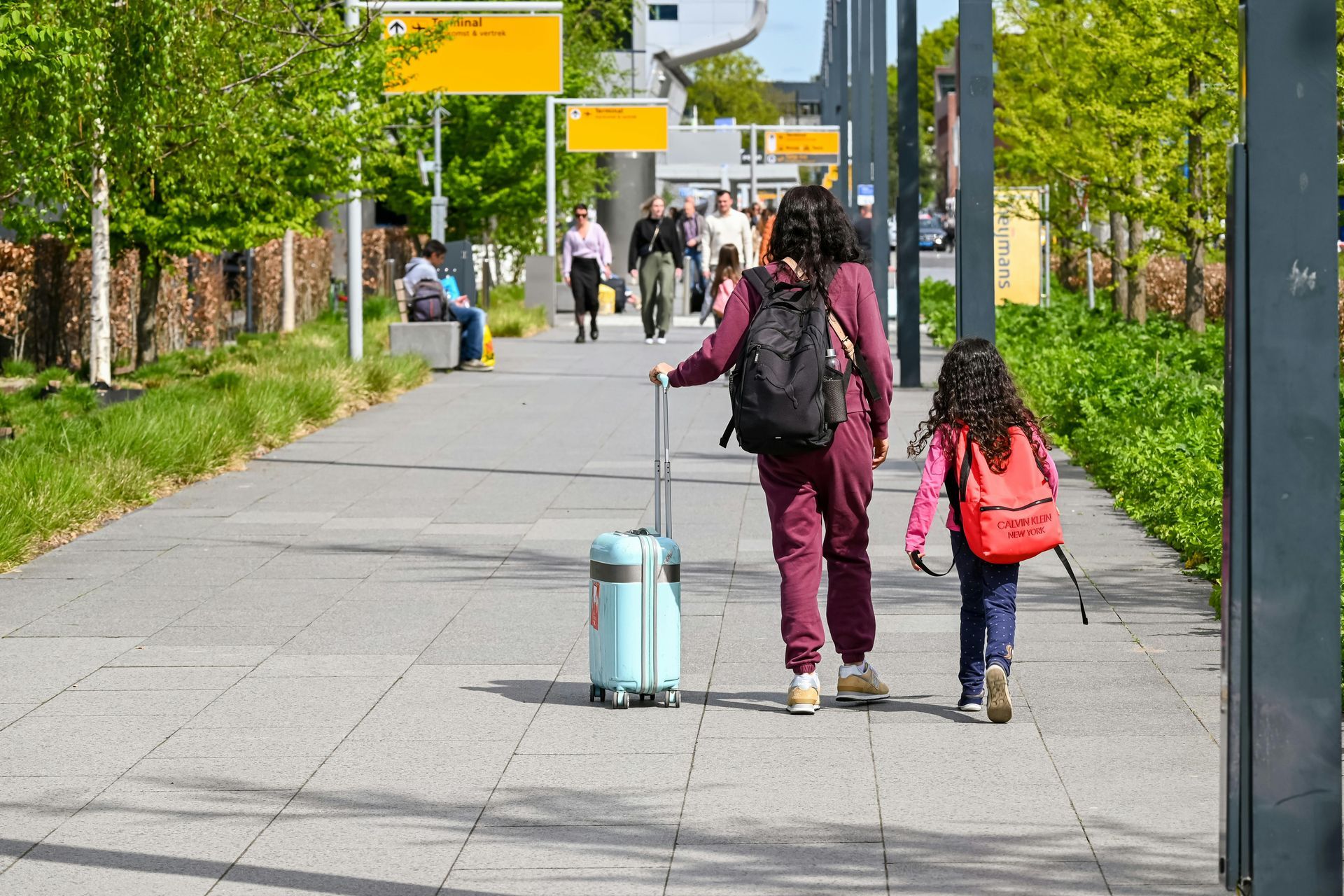Categories
Business
Family
Entertainment
Athletes
All Posts

U.S. Citizenship and Immigration Services (USCIS) has announced a major change to the H-1B cap selection process. Under a final rule issued on December 29, 2025, USCIS will replace the long-standing random H-1B lottery with a wage-weighted selection system that favors higher-paid and more complex positions. The rule is scheduled to take effect on February 27, 2026 , just ahead of the fiscal year 2027 H-1B cap registration season, unless delayed by legal challenges. If implemented, USCIS is expected to release additional guidance explaining how employers must submit registrations under the revised process. This change marks one of the most significant reforms to the H-1B program in recent years. Up until 2025, all registrations were treated equally once the annual cap was reached. Under the new system, selection odds will be tied to wage levels based on the U.S. Department of Labor’s Occupational Employment and Wage Statistics data. All H-1B registrations will still be placed into a single selection pool, but registrations tied to higher wage levels will receive multiple entries into that pool, increasing their likelihood of selection. Lower wage levels will receive fewer entries, making selection less likely but not impossible. H-1B wage levels are not determined solely by salary. Each wage level reflects the complexity of the job, the level of responsibility involved, and the education and experience required . Entry-level positions involving routine duties and close supervision are generally classified at the lowest wage level, while positions requiring independent judgment, advanced skills, and significant responsibility fall into higher wage levels. The highest wage level is reserved for roles that involve expert knowledge, strategic decision-making, and substantial leadership or technical authority. USCIS is expected to closely scrutinize selected petitions to ensure that the wage level claimed during registration is supported by the job duties and salary offered in the petition. Any discrepancies between the registration and the petition may result in requests for evidence, denials, or enforcement action. With the elimination of the purely random lottery, employers should begin preparing early by carefully evaluating job descriptions, wage levels, and overall H-1B strategy. Accurate classification and thoughtful planning will be essential under this new wage-based selection system. If you are an employer considering H-1B sponsorship, or a foreign professional wondering whether your position may qualify under the new wage-based system, consulting with experienced immigration counsel is more important than ever. Santos Lloyd Law is actively advising clients on H-1B cap registrations and strategy under the new rules. To discuss your options or determine whether you may qualify, contact our office to schedule a consultation.

During the recent administration there has been an increase in issuance of Requests for Evidence for EB-1A petitions for those of Extraordinary Ability. A Request for Evidence is a request that is made by USCIS that should explain how the evidence is deficient in proving the criteria argued and what additional evidence needs to be provided by the applicant to meet the criteria. EB-1A petitions are already normally subject to higher scrutiny because their approval is the first step needed to apply for Lawful Permanent Residence or a green card. USCIS normally requires not just evidence but that the evidence be provided with context and information to show why it matters in a particular field. For example, if you were providing evidence of your membership in an organization that requires outstanding achievements of its members, just providing evidence of the membership is not enough. You must explain what that membership is and provide background information on the organization granting the membership. You also need to provide evidence on the criteria that is used to select the members, information on those who select the members to show that they are recognized experts, other documentation such as articles about the membership organization to show its importance, and any other relevant evidence and background information to show that the criteria is met. A request for evidence being issued prior to the current administration was not uncommon, but in the current climate it is more surprising to not receive a request for evidence for this type of case. It is important to remember that a request for evidence is not a denial. Depending on the validity of the information in the request and the substance some Requests for Evidence can be overcome, and the case be approved. It is important to carefully review the request and note if there are any errors in the content and application of the regulations by USCIS. If you have an attorney, you should work with them and make sure that you provide any evidence you think may be helpful. Although there is a deadline by which a response must be submitted, attention to detail and patience will go a long way when dealing with having to respond to a request for evidence. If you believe you may qualify for this type of visa, please feel free to contact our office.

Once you have connected with a college program, have been admitted to the school, and deemed eligible to compete athletically, you will need to secure an F-1 student visa in order to actually attend your new college and begin your time as a student athlete. The first step in the visa process is to receive your Form I-2

For many talented athletes around the world, U.S. college athletics represent a remarkable opportunity to combine elite athletic competition with higher education. In sports such as basketball, soccer, track and field, and tennis, among others, hundreds of colleges and universities across the United States offer struct

Under the new regulation, if a person filed or files Form I-589, Application for Asylum and for Withholding of Removal after October 1, 2024, and the application remains pending with USCIS for 365 days, the applicant must pay an Annual Asylum Fee (AAF) on the one-year anniversary of his or her filing date.

It’s no secret that the U.S. immigration system has faced increased scrutiny and change in recent months. From evolving policies to headlines filled with uncertainty, it’s understandable that many individuals are left wondering: Is this still the right time to pursue a future in the United States? The answer is yes—and here’s why. Despite the shifting political landscape, the core structure of U.S. immigration law remains firmly in place. While the process may appear more complex or demanding than it once was, the legal pathways to live, work, and thrive in the United States are still open and accessible to those who take the proper steps. What often gets lost in the conversation is that the United States remains a country built on innovation, creativity, and resilience. It continues to attract global talent, entrepreneurs, artists, and professionals from all walks of life. Whether you are launching a business, advancing your career, or seeking a better life for your family, the United States offers unparalleled opportunities to those who are prepared and determined. Much of what makes the United States a global economic and technological leader today is the direct result of contributions made by immigrants. Nearly half of the current Fortune 500 companies were founded by immigrants or their children. Immigrant entrepreneurs have long been an essential part of America’s economic success story. Some of the largest and most recognizable American companies were founded by immigrants or the children of immigrants. This includes household names such as Apple and Costco. Moderna, the pharmaceutical company and vaccine producer, was founded by a Canadian-born stem cell biologist, Derrick J. Rossi, whose parents themselves emigrated from Malta. These success stories are not outliers; they are part of a broader pattern that reflects the drive, innovation, and resilience that immigrants bring to the country. The United States also offers one of the most dynamic and diverse economies in the world. It is a place where hard work, fresh ideas, and entrepreneurial vision are rewarded. For creative professionals, business leaders, and investors, the United States provides a unique platform to grow, connect, and gain global influence. Its competitive marketplace, access to capital, and culture of innovation create unmatched opportunities for those ready to seize them. While the immigration process requires careful planning, that process is far from impossible. Indeed, having strong legal guidance is one of the most effective advantages an applicant can possess. Immigration law is complex, and each case must be evaluated individually. A clear, strategic plan tailored to your background and goals can significantly improve your chances of success. What may feel like a hurdle at first glance is often navigable with solid preparation and documentation. At our immigration law firm, we have had the privilege of assisting individuals from all over the world as they navigate these complexities. Time and again, we have witnessed how determination, careful preparation, and experienced legal counsel can turn uncertainty into opportunity and help transform a vision for the future into reality. If you have been uncertain about whether to move forward, let this be your sign to take the next step. The United States is still a land of possibilities. If you are ready to take that step, now is the time to act. Let us build your path forward together.

For individuals applying under the O-1A or EB-1A categories , both reserved for professionals with extraordinary ability, letters of recommendation are a critical part of the petition. These expert testimonial letters offer valuable insight into your accomplishments, reputation, and influence within your field. When written properly, they help demonstrate that you truly stand out as someone who has risen to the very top of your profession. Many petitions submitted by highly accomplished individuals fall short because the recommendation letters are vague, overly personal, or fail to clearly explain why the applicant meets the legal standard of extraordinary ability. That is why taking the time to prepare your recommenders effectively is not just helpful. It is essential to build a strong and persuasive case. First, it is important to help your recommenders understand the purpose of the letter . This is not a casual reference or character recommendation. It is a formal declaration to U.S. Citizenship and Immigration Services that you possess extraordinary ability in your area of expertise. The letter must describe your achievements in concrete terms and explain why your work has had a significant impact and recognition within your field. Many professionals, no matter how accomplished, are unfamiliar with the specific requirements of the O-1A and EB-1A categories. It is helpful to provide them with a short explanation of what is needed, and in some cases, a sample or outline to guide them. Selecting the right recommenders is just as critical as the content of the letters themselves. While USCIS gives greater weight to letters from independent experts, independence should not be confused with distance. The ideal recommender is someone who knows your work well and can provide specific and credible insight into your contributions, impact, and reputation in the field. A letter from someone who barely knows you, or one that focuses more on the recommender’s own accomplishments than yours, is unlikely to carry much weight with USCIS. A common mistake is submitting letters that read more like summaries of the recommender’s resume than a meaningful evaluation of your achievements. While a brief introduction of the recommender’s qualifications is important to establish credibility, the focus must remain squarely on you , your work, your innovation, and the ways in which your impact is considered extraordinary. The strongest letters go beyond general praise. They include clear and detailed examples of how your contributions have influenced others in your field or led to measurable outcomes. To make the letter as accurate and persuasive as possible, you should provide your recommenders with a summary of your most important professional milestones. This might include major awards, media coverage, patents, publications, notable leadership roles, or metrics showing the commercial or scientific success of your work. Well-prepared recommendation letters serve as both evidence and narrative. They help fulfill specific legal requirements and also tell the story of how and why your work has earned you distinction. In a category defined by terms like extraordinary ability, it is important that every part of your petition reinforces that standard. At Santos Lloyd Law Firm, we work closely with our clients and their recommenders to develop strong and compelling testimonial letters that meet USCIS expectations and highlight each applicant’s unique contributions.

Family-based immigration remains one of the most common paths to lawful permanent residency in the United States. It offers a lifeline to families hoping to reunite across borders, but the process is far from simple. The outcome of the applications can be delayed as a result of potential missteps while preparing the applications. Here are some of the most common pitfalls and how to avoid them: Incomplete or Inaccurate Forms One frequent mistake is submitting incomplete or inaccurate information on the forms like the I-130 (Petition for Alien Relative) and the I-485 (Adjustment of Status). Even minor errors such as misspelled names, missing signatures, or incorrect dates—can result in Requests for Evidence. To avoid this misstep, double-check all entries, cross-reference documents, and consult with an attorney before submission. Remember, immigration forms are legal documents so accuracy matters. Insufficient Supporting Evidence Proving a genuine familial relationship is the basis of family-based petitions. For spousal cases, USCIS looks closely at evidence of a bona fide marriage. Little or no supporting documents and evidence may lead to Requests for Evidence and even skepticism from USCIS. To establish a bona fide marriage, include documentation to show shared finances and liabilities. Filing Under the Wrong Category or Preference There are different immigration paths depending on whether the petitioner is a U.S. citizen or lawful permanent resident, and whether the beneficiary is a spouse, child, sibling, or parent. Each category has different processing times and visa availability. It is critical that before applying, you understand which preference category applies to your case. Immediate relatives of U.S. citizens (spouses, parents, unmarried children under 21) generally receive faster processing and are not subject to annual visa caps. Not Disclosing Past Immigration or Criminal History Many applicants fail to account for past immigration violations such as visa overstays, unauthorized work, or prior removal orders. Similarly, if you fail to disclose past criminal history and these issues surface later in the process they can affect the outcome of the case. Disclose everything to your attorney, no matter how minor or old the issue seems. Prior violations don’t always mean denial but not disclosing them may lead to serious consequences. If you're considering filing a family-based petition, consult with an experienced immigration attorney at our office. Our office is committed to helping families navigate this complex process with clarity and confidence.
Santos Lloyd Law Firm, PC
Email: info@santoslloydlaw.com
Phone: (949) 316-0078
Fax: (949) 271-4500
Office Visits by Appointment Only:
4340 Von Karman Ave, Suite 110
Newport Beach CA, 92660
Phone: (949) 316-0078



